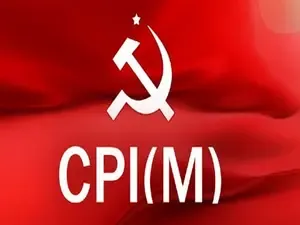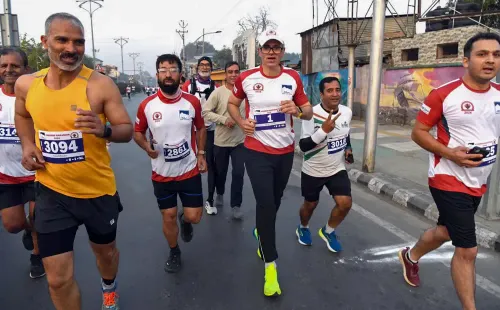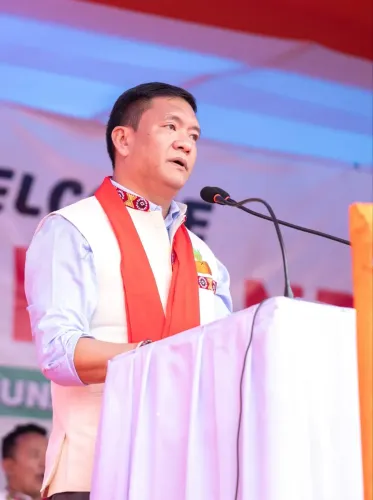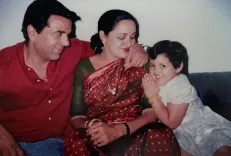CPI-M to Embrace Full Decentralisation in Bengal Campaign Strategy

Synopsis
Key Takeaways
- Decentralisation of campaign strategy is aimed at better addressing regional issues.
- The strategy was supported by a significant number of conference delegates.
- Two layers of decentralisation: zonal and constituency-specific.
- The ruling Trinamool Congress is viewed as benefitting from binary politics.
- Party leadership emphasizes countering BJP politically and ideologically.
Kolkata, Feb 25 (NationPress) The CPI-M in West Bengal is set to implement a strategy of complete decentralisation for its campaign in the upcoming Assembly elections scheduled for next year.
This approach may be adopted based on an internal report presented during the party's ongoing 27th state conference held at Dankuni in the Hooghly district.
According to party insiders, the decentralisation strategy has not only been suggested in the internal report, but a significant number of delegates at the conference have also voiced their support for this initiative.
Describing the decentralisation process, a member of the Central Committee explained that the first level of regionalisation will occur at the zonal level, where the primary issues pertinent to each zone will be identified to tailor the campaign strategy accordingly.
In the second tier of decentralisation, he noted, the campaign strategy will be further divided based on key issues relevant to the assembly constituencies within the corresponding zone.
"West Bengal showcases a multitude of cultural and ethnic variations, where the key issues and aspirations of one zone differ significantly from another. In this context, a uniform campaign strategy for the entire state is unlikely to succeed. Thus, decentralisation of the campaign strategy becomes essential," remarked the Central Committee member.
The party's 27th state conference, which commenced on February 22, is expected to conclude on Tuesday, after which the new state committee of the CPI-M will be revealed. This newly appointed committee will spearhead the party's efforts for the Assembly elections next year.
An internal document from the CPI-M has indicated that the ruling Trinamool Congress is viewed as the primary beneficiary of the binary political landscape in West Bengal.
This internal document, which evaluated the party's electoral strategy, emphasized the importance of party members across all levels focusing on countering the BJP both politically and ideologically.
"In West Bengal, the party has been engaged in a struggle against both the Trinamool Congress and the BJP for the last decade. In pursuing this, party members must prioritize countering the BJP politically and ideologically. This is crucial as a significant number of secular-minded individuals perceive the TMC as a viable counter to the BJP due to the binary politics that has emerged," the document stated.
However, some leaders within the CPI-M's West Bengal faction believe that labeling the Trinamool as the main beneficiary of this binary political situation is an overly simplistic view. While it is accurate that some secular-minded voters regard TMC as a counter to the BJP, there is also a considerable number of anti-TMC voters who are beginning to see the BJP as an effective counter to the ruling party.









